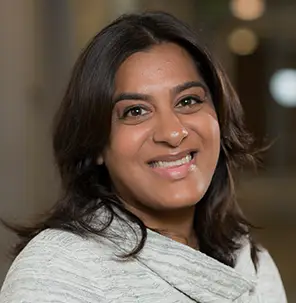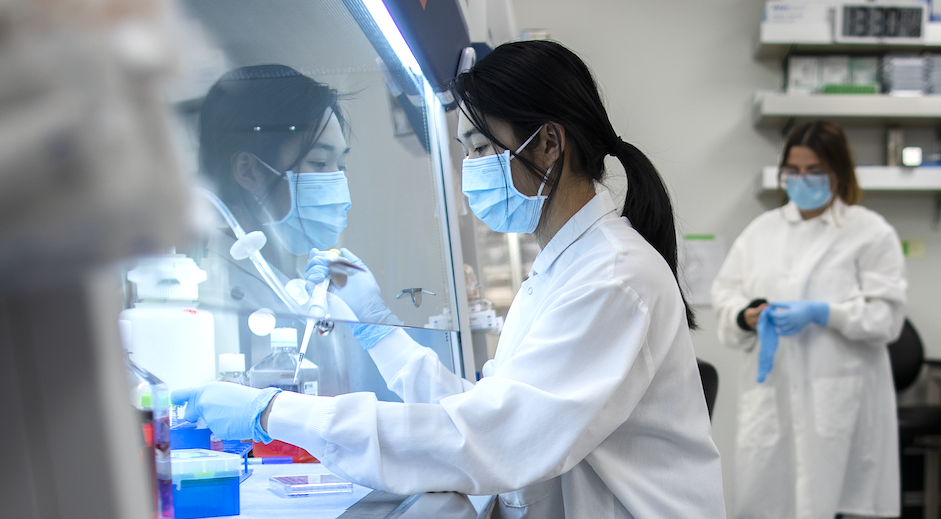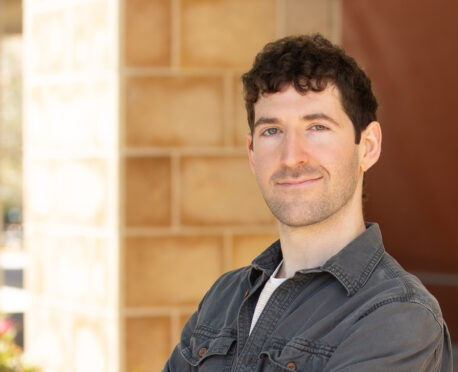LA JOLLA, CA—Three researchers at La Jolla Institute for Immunology (LJI) have won funding through the Prebys Foundation’s “Prebys Research Heroes” Program. LJI Professor, President & CEO Erica Ollmann Saphire, Ph.D., MBA, LJI Associate Professor Sonia Sharma, Ph.D., and LJI Professor Sujan Shresta, Ph.D., will each receive two-year grants totaling $500,000.
The “Prebys Research Heroes” Program celebrates female scientists pursuing “high-risk, high-reward” research projects. The program is a partnership between Prebys Foundation, Science Philanthropy Alliance, and the consulting organization Open Impact.
According to their recent announcement, “Prebys Foundation and its partners hope to set a new standard for philanthropic support in science—encouraging more inclusive, exploratory, and promising research.”
About the LJI winners:
LJI scientists study the immune system from every angle. “La Jolla Institute has the brainpower, the tools, and the technology to address the question, ‘Why do we get sick? And what are the interventions we need to put in place to stay healthy?’” says Saphire.
Shresta says the new award from Prebys will help advance medical research in San Diego—and around the globe. “This grant allows me to do science that is not just important for one community or country, but for all of us sharing this planet and exposed to the same pandemics,” says Shresta.
Sharma, Shresta, and Saphire each lead laboratories focused on critical immune system issues:

Saphire has advanced the use of tools in structural biology to investigate the interactions between viruses and human antibodies. This research is an important step in developing vaccines and life-saving therapies against threats such as Ebola virus, Lassa virus, SARS-CoV-2, and even rabies. Saphire has also expanded this work to study potential strategies against ovarian cancer.

Sharma has developed high throughput, genome-scale approaches to understand the body’s first line of defense against disease, called the innate immune system. By harnessing technologies such as RNA interference and CRISPR/Cas9, Sharma has shed light on the body’s innate response to cancers, SARS-CoV-2, vascular inflammation, and more.

Shresta has pioneered the study of how T cells defend the body against SARS-CoV-2 and several deadly flaviviruses, including dengue and Zika. Her research has revealed how immunity against one flavivirus can affect the body’s response to a later infection with a different flavivirus. With these insights, Shresta has developed a self-amplifying RNA vaccine platform, which may lead to new vaccines for dengue and Zika viruses.
“Virus-host interactions differ depending on patient populations, geographical locations, and other environmental factors,” says Shresta.
Shresta leads fair international collaborative efforts that are mutually beneficial to both high- and low-income countries. She will use the Preby Research Heroes funding to explore how neurotropic flaviviruses such as Zika and Powassan may trigger dementia.
A world-changing mission
Like Prebys, LJI scientists believe diversity, equity, and inclusion (DEI) are key to advancing medical research. In fact, as President and CEO, Saphire was in a unique position to use her award for an institutional priority. She chose to designate part of her Prebys funding to hire Dominic Cooper, MAOL, CCM, as the Institute’s first-ever DEI and Mentorship Program Coordinator. Cooper is now working to expand the LJI internship program, which is focused on advancing the scientific careers of students from underrepresented groups.
In their announcement, Prebys lauded Sharma, Shresta, and Saphire for their leadership in mentoring young scientists and in establishing strong collaborations with diverse groups of scientists around the world.
Sharma, Shresta, and Saphire have also prioritized equity in their research efforts. All three are members of LJI’s Center for Sex-Based Differences in the Immune System, directed by Sharma.
As Sharma points out, women were excluded from clinical trials for decades. Now that more studies include women, researchers have found vast differences between how men and women develop disease. Viral infections tend to cause more severe symptoms in men, while women are much more prone to developing autoimmune diseases. Women are also more likely to develop aggressive cases of Alzheimer’s disease.
Sharma says investigating immune differences between men and women may improve health outcomes for all. In this vein, LJI has partnered with Women’s Health Access Matters (WHAM) to advocate for research that addresses health disparities between men and women.
“The point isn’t to treat one population or another, it’s to understand the differences in the diseases so we can get at the right treatment for the right person by taking into account their unique biological make-up,” says Sharma.
Learn more:
About the “Prebys Research Heroes” Program
Article: Learning from men, learning from women
Article by LJI Science Writer Madeline McCurry-Schmidt. Scientist quotes provided by Prebys, written by Eric Brown




